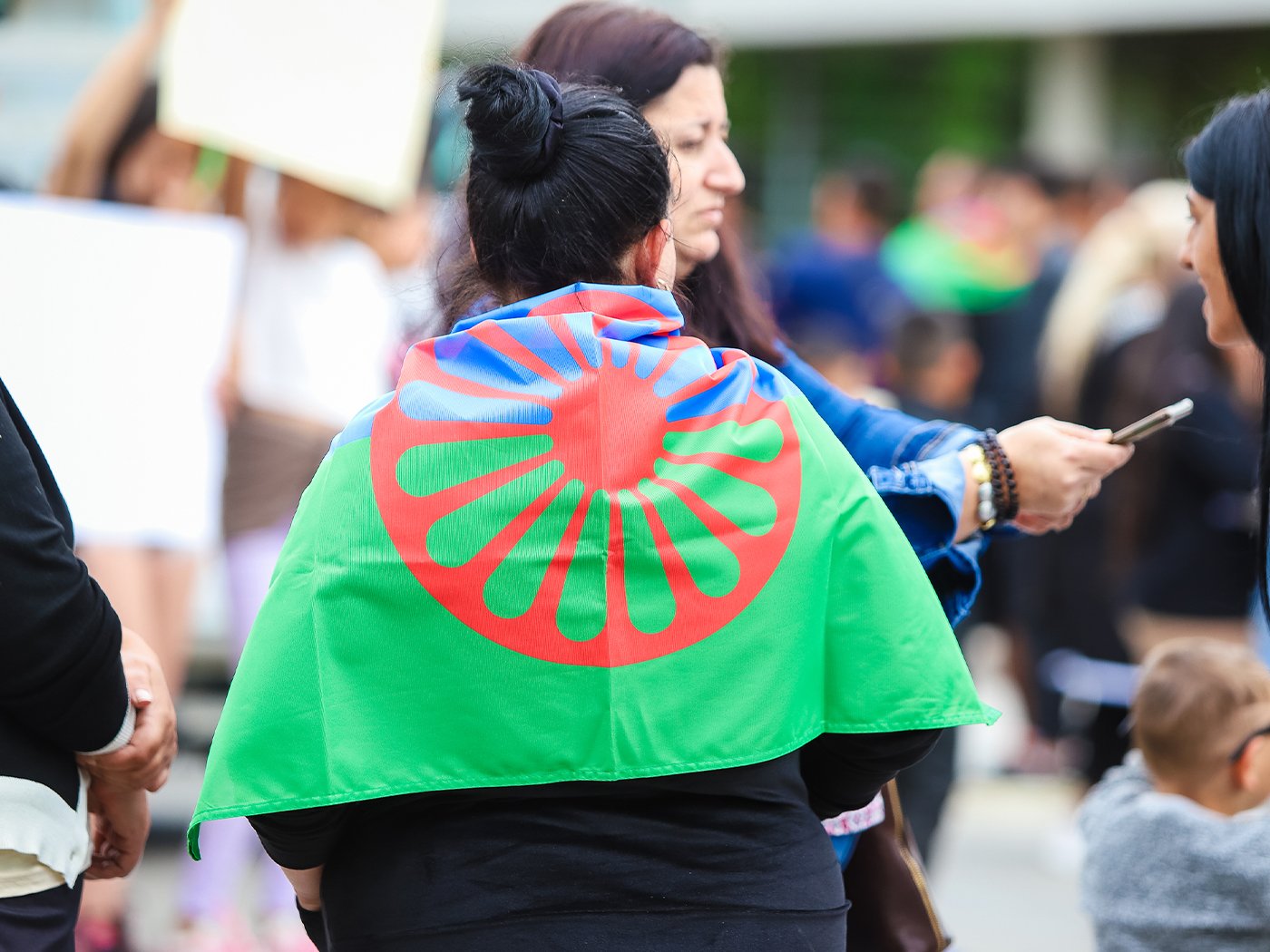The Romani language is more than speech—it is a political order built on trust and understanding, offering lessons Europe urgently needs to relearn.
What the Roma Can Teach Europe—and the World—About the Future of Political Order
Today’s world is full of noise and uncertainty. Borders shift, nations quarrel, and technology speaks faster than people can think. Meaning has become a weapon—used to divide rather than connect. Long before this age of confusion, the Roma built a civilisation on the opposite idea: that understanding itself can sustain political order.
For more than a thousand years, the Roma have governed through words instead of weapons. The Romani language became our political order—spoken, remembered and renewed from one generation to the next. In villages from Anatolia to the Danube, Roma judges settled disputes through dialogue: two witnesses, one oath, one decision. It was not folklore or custom but a system of governance encoded in speech—a political intelligence that worked through comprehension, trust and reputation.
No empire protected this system, yet it endured them all. The Romani language outlasted Byzantium, the Ottomans, the Habsburgs, the Russian tsars and the Soviets. Each of those powers built armies and bureaucracies to enforce control—and each eventually collapsed under its own weight. But the Roma have endured without a capital, a treasury or a standing army. Our system was portable, self-correcting and decentralised. It functioned as a network of trust, verifying legitimacy through mutual understanding instead of state authority.
Spoken by millions in Europe and beyond, the Romani language has a geographic reach and historical continuity comparable to that of English or French—without ever having had an empire behind it. While some Roma no longer speak it fluently, the language remains the shared foundation of belonging—a living political order spoken, remembered and recognised across borders and generations.
Part of its strength is its multilingual nature. The Romani language has absorbed the vocabularies of others without losing coherence. Indo-Aryan in its roots, it learned Persian in the Kushan courts, Greek in Byzantium, Turkish and Arabic under the Ottomans, and every European language it later encountered. Over centuries, it has lived beside and within all major European tongues—Germanic, Slavic and Romance—borrowing and translating without breaking its inner logic. Every new language spoken expanded Roma political agency; every act of translation renewed belonging. Where European states sought unity through uniformity, the Roma built cohesion through translation. Multilingualism is not a trace of exile but the way our order governs across difference instead of erasing it.
For six centuries, Europe tried to silence this order. In 1471, the Diet of Lindau expelled Roma from imperial lands, and one decree after another followed across the continent. The Habsburgs banned the language, changed our names and seized our children. Russia made comprehension itself a crime. Fascism turned persecution into mass murder, leaving no complete record of up to two million Roma deaths. Communism replaced extermination with assimilation, and democracy later reduced our political order to folklore. Yet the Romani language endured every attempt to erase it.
It is more than a means of speech; it is a way of managing power. Through every empire it learned, adjusted and stayed whole. Under the Byzantines, our language mediated among guilds and trades; under the Ottomans, it kept civic balance within the empire’s mosaic of faiths; under the Habsburgs, it outlasted bureaucracy through oral contract; under fascism, it preserved justice in memory when archives burned.
Where others ruled through fear, we governed through understanding. Long before machines processed information, the Roma built a human network—adaptive, decentralised and held together by trust. The Romani language has survived for a millennium because each generation treated it not as heritage but as responsibility. Recognition is the first act: realising that our language is not culture alone but an order that governs through understanding.
Expansion is the second: bringing that order into education, public life and international institutions, where every use of Romani strengthens our political agency. Every school that teaches Romani, every organisation that deliberates in it, and every digital platform that hosts it enlarges the reach of a living order. Every conversation in Romani is a political act—each exchange renewing jurisdiction, each act of comprehension restoring legitimacy. In sustaining this network of understanding, the Roma have kept alive a political imagination that Europe itself once shared—and now desperately needs to recover.
On a continent again shaken by war, inequality and fear—divided by hate and hardened by technology—the Romani language offers a lesson: trust cannot be automated, and inclusion cannot be decreed—both must be spoken into being. In a time when voices are replaced by algorithms and neighbours by borders, the Roma remind the continent that understanding is still the first condition of peace.
And on this World Romani Language Day, a child somewhere will learn her first Romani word—and carry a thousand years of meaning in her breath.

Mensur Haliti
Vice President for Democracy and Network Development
The latest

Serbia Must Amend Missing Persons Alert System to Protect Vulnerable Adults

Constitutional Review of the Šutar Law Confirms Serious Rule-of-Law Concerns

Europe’s Growth Depends on Roma Talent
Browse by category
Campaigns
Events
Facts
Press
Voices
For media inquiries:
[email protected]Sign up here so you don’t miss out on campaign updates, upcoming events and other news from the Roma Foundation for Europe and our network.
Sign up for our newsletter